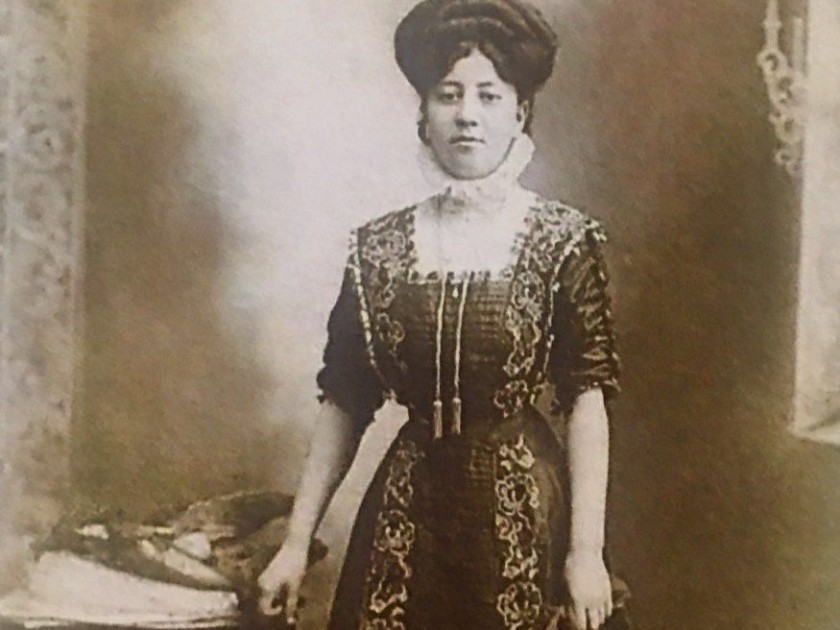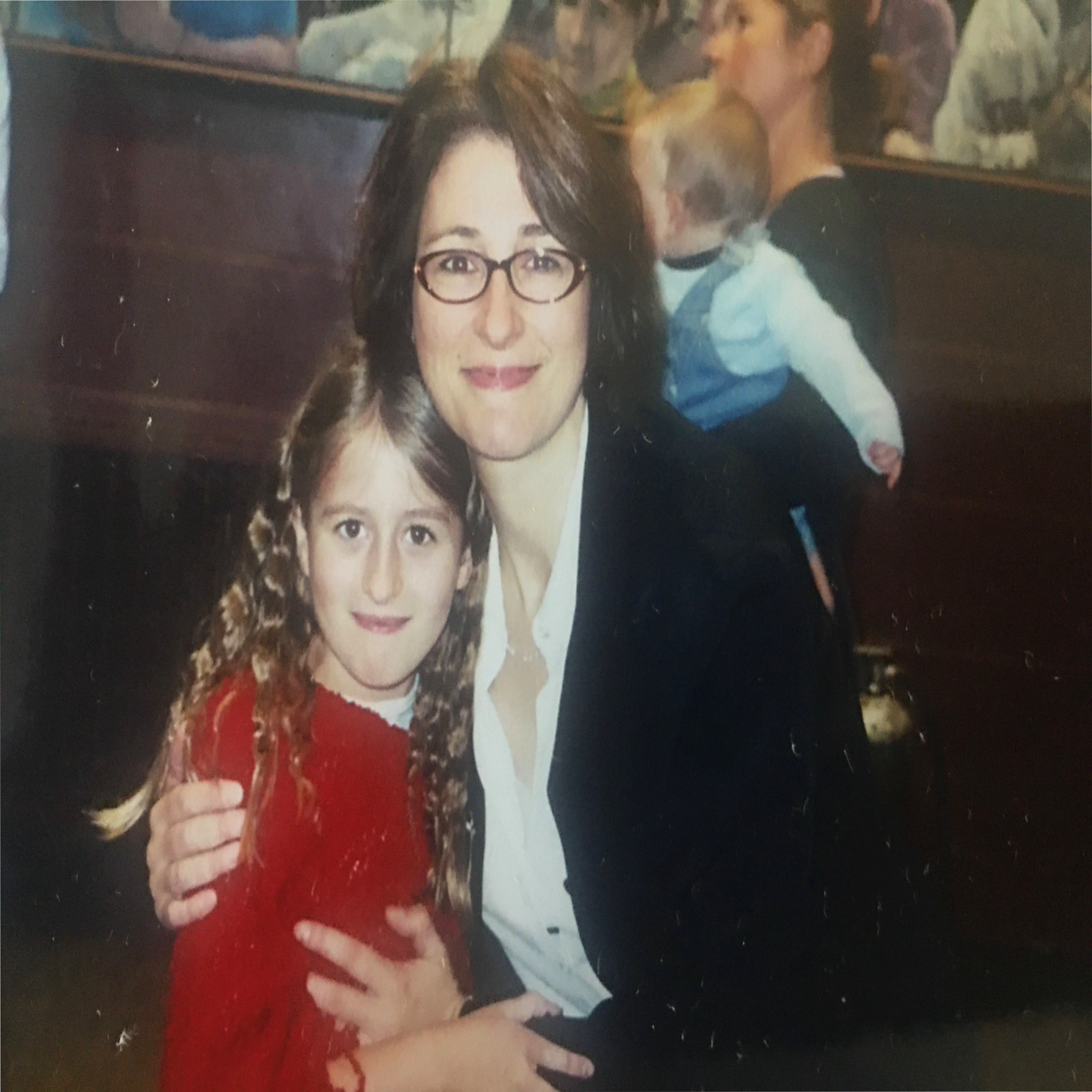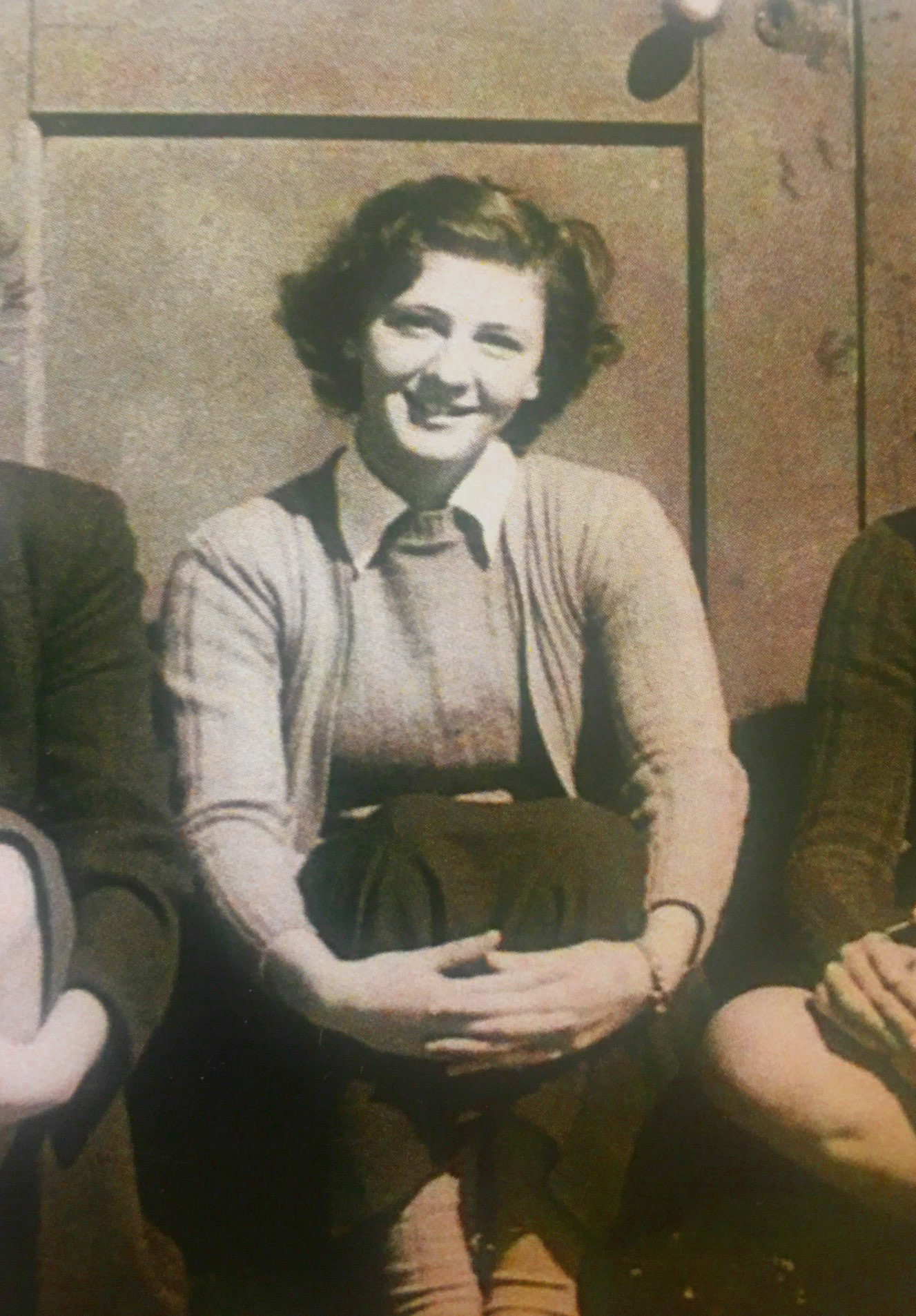Join a community of readers who are committed to Jewish stories
Sign up for JBC’s Nu Reads, a curated selection of Jewish books delivered straight to your door!

Shira’s Grandmother
“Am I the person in the boat or am I the observer on the bank? Is this the view of a stretch of the…[river]…where I used to fish as a child? Or is it a vision of the individual soul’s journey through time, a passage as transient as a boat’s wake on flowing water? ”
—William Boyd, Any Human Heart, 2003
It’s not always easy to identify the origin of a book, but I can precisely locate the birth of my forthcoming novel River.
I was sitting with my ten-year-old daughter in the kitchen of our Brooklyn apartment, watching her draw. Her lips were pursed with concentration as she arced her pencil over the page. The late afternoon sun broke through the cloud just as a gentle rain started to fall; suddenly, around my daughter’s blonde hair, I saw a pulsing of color — faint pink and then around that, yellow, and then, pale blue. The ripples of color proliferated out into the room; time slowed and seemed almost to come to a standstill. It is the past—the words came to me, almost as a voice—she has no idea of all the women who have come before her, who are pouring into her right here, right now, who make her who she is. I held my breath; I didn’t want the moment to end. The sun slid back behind the cloud, and the colors that had mystically touched my daughter’s face faded to nothing. Something, though, had changed.
That night, lying in bed, a rush of words came at me. I reached for my notebook as images flashed — a picture first of me, aged about fourteen. Then of my mother, same age, from one of the few photos she has from her childhood in a dusty, South African country town; she was the last of ten children born to Jewish parents who had fled the persecution of Eastern Europe in the early years of the twentieth century. Behind these, other images flashed but would not come into focus — other girls, also aged fourteen, stretching back through the ages; my grandmother, my great-grandmother, and pictures that didn’t exist, faces I could never know. And yet, that afternoon, the resonances of all these young girls had somehow been here in my own kitchen, I was sure of it, alive in the ripples of colorful aura around my daughter.
And yet, that afternoon, the resonances of all these young girls had somehow been here in my own kitchen, I was sure of it, alive in the ripples of colorful aura around my daughter.

Shira and daughter, Juliana, around age ten
She is all of you, my pen scribbled across the page. She is herself.
I imagined my daughter going on a mysterious journey through time, where she would meet her maternal forebears when they were young. On this journey, she would learn about the Jewish history that flows, like a river, through the generations of my family. It pained me in that moment to realize that after some early conversations with my husband about how we would raise our children, we had somehow sidestepped the issue, so that by default, our children had not been raised with any religion. Our only family traditions were ones we developed ourselves, which had nothing to do with religion; travel to foreign countries, and an interest in languages, poetry and the arts.
As the chapters of River unfurled on the page, almost of their own accord, my heart pounded with the vitality of my own history — that of my family, that of my people, the Jewish people, from whom I had unconsciously drawn away. I was surprised by how I depicted my own fourteen-year-old self in conversation with the protagonist of my book, Emily, a stand-in for my own daughter.
A child of South African immigrants, I had grown up in Australia as part of a close-knit Jewish community made up mostly of Holocaust survivors. The character who was a stand-in for me was keenly aware of aspects of Australian history, and yet seemed to feel like a visitor in her own country, cut off somehow from the lifeblood of the nation. As I wrote, I recalled the odd retort I’d made to someone years after I moved to the United States who, noting my accent, asked me if I was Australian. “Not really,” I found myself saying. “More like — Australia is a place I once grew up in.” I laughed, thinking my retort was witty; but I was also aware of something aching and lost within.
A child of South African immigrants, I had grown up in Australia as part of a close-knit Jewish community made up mostly of Holocaust survivors.

Shira’s Mother
In the world of River that I was building with words, I loved sending Emily to spend the summer with my mother, where my mother shared stories of her own past as they talked late into the night, creating that sacred grandmother-grandchild space I’d always wished my children had had the opportunity to experience. Then, after Emily trips back through time to the Melbourne, Australia, of my own teenage years, I felt flooded with joy as my father sprang to life on the page, even as the tears welled up; my father died in his fifties and was not to meet any of his grandchildren. As I wrote him back to life, I delighted in the sound of his enthusiastic voice as he strode into the room, ecstatic that in the reality I was conjuring, I could have my own daughter meet him and spend the day with the two of us on a grand adventure: flying in a four-seater propeller plane, piloted by my father, into the Australian outback.
Sending Emily back further, to the dusty, backwater country town of my mother’s South African childhood, was painful, though also illuminating. My mother’s stories of her coming-of-ages years had always filled me with anguish. The picture she painted was one of deprivation and severity. She was the youngest of ten siblings and her parents, Lithuanian immigrants who worked long hours for meager earnings, were locked in a hostile marriage that created a poisonous atmosphere. Outside the home, my mother faced daily indignities, even abuse, at the hands of her Afrikaaner teachers and fellow students, who were pro-Nazi and overtly antisemitic. Beyond the confines of my mother’s narrow world was the even more harrowing reality of the people of color, relegated by a heinous, racist society to lives of ghastly limitation and unremitting poverty. My mother was a sensitive soul who felt the ills of the world around her; throughout her childhood, she fought to keep her own spirit from being crushed. Imagining her life as I wrote evoked for me this pain, though it also reignited a tremendous admiration for the ways in which my mother not only endured, but went on to make a bountiful life for herself and her family half-way around the world from where she’d been raised.
Imagining the life of my grandmother — my mother’s mother — was a new and entirely unexpected adventure for me. All my life, I had been filled with anger towards this woman I never knew — for the unkindness and severity she had shown my mother, according to stories my mother told me over and over again throughout my childhood. But as I imagined my grandmother’s earlier life, I found myself conjuring my grandmother Sarah as a young girl, with sparkling eyes and a ready laugh, who adored her own father, lovingly mothered her little brother, and worked unceasingly for her family. My protagonist Emily, on her back-in-time adventure in the Lithuania of 1915, wonders with sadness about the hardships this ebullient and admirable young Sarah must have faced to transform her into the withholding, cruel matron she’d encountered in her previous adventure in the South Africa of 1943. Through Emily, I was able to find sympathy for the unyielding matriarch of my mother’s childhood stories; as I wrote, I found my heart aching for the struggles she surely faced in her life.
Through Emily, I was able to find sympathy for the unyielding matriarch of my mother’s childhood stories; as I wrote, I found my heart aching for the struggles she surely faced in her life.
As I was writing River, my mother became ill. Towards the end of her life, I was sitting by her bed in the nursing home where she spent her last months and found myself saying something harsh about her mother. To my surprise, my mother turned to me and said in a gentle voice: “Darling, my mother wasn’t a bad woman. She had her merits; she’d had a terribly hard life and did the best she could.”
I was stunned by the look of empathy in my mother’s face; as she approached her own end, she had come to see her mother in a new light. I only realized then that though consciously I had harbored antipathy towards the grandmother I had never actually known, this same empathy had found its way into my book.
My daughter grew up to be an actor, so when a trailer for the book was suggested, we asked the production company to cast her. When I first saw the trailer, I felt I was somehow coming full circle — from that moment at the kitchen table, sensing the echoes of my forebears, to seeing my daughter engaging with the young girls I had imagined from the past and given life to in the book.
Shira Nayman is a psychologist, consultant, and author of four books, who has been published in The Atlantic, The Forward, and O Magazine. She has built a reputation for running vital group discussions and work sessions: she has toured for JBC, been a well-received HBI Conversations author, and has taught and given invited lectures at JCCs and colleges, including Columbia, Barnard, and Carleton.